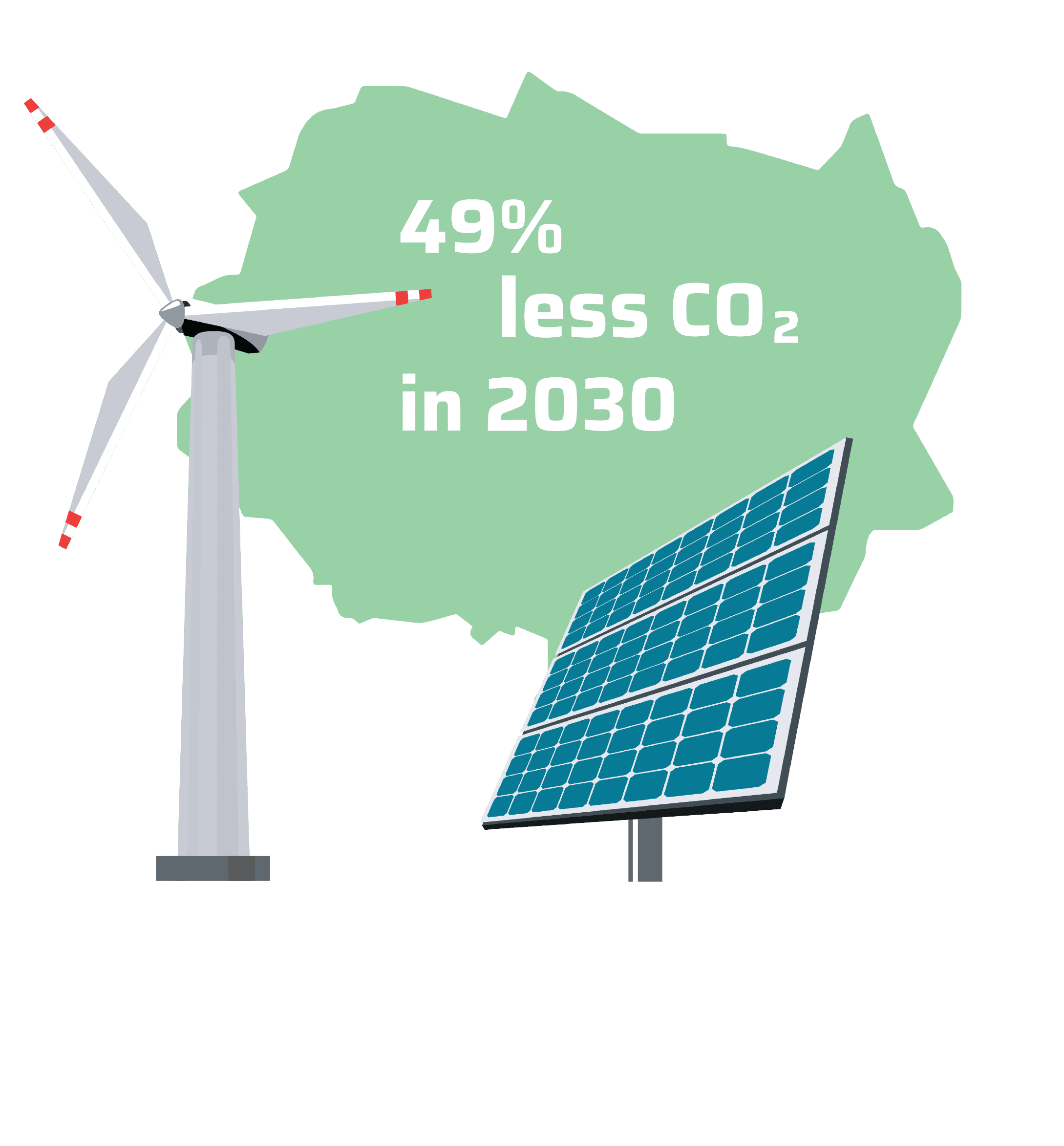MOVING FORWARD WITH FEST
Twente Colours The Future
Renewable energy is the future – for industries, the environment, and society as a whole. Therefore, the Fraunhofer Expertise Student Team (FEST) joined forces with renewable energy experts to reduce the ecological footprint in the region of Twente. Within the past six months, students developed a tool that supports the decision-making process for the local renewable energy expert team, which allows for faster progress to realize their ambition of an energy-neutral Twente by 2050.
The project was initiated by Regional Energy Strategy Twente. It is an initiative drawn up by major substantive experts and representatives of the 14 municipalities based in Twente: the province of Overijssel, the Vechtstromen water board, the network operators Enexis and Coteq, the Twente housing associations, Twence, and the University of Twente. Participating in this project would make Twente’s first steps to reaching its vision of being energy neutral before the year 2050 by expanding the regional heat network, realizing a biogas network and generating more energy with solar panels on large roofs, solar fields and wind turbines.
However, generating more renewable energy for a sustainable future is only one piece of the puzzle. Other pieces include the re-engineering of infrastructure to create smart grids, the electrification of industries, and many more aspects that have to be dealt with to execute this energy transition. A forthcoming change with this magnitude requires extensive decision-making processes which entail large numbers of stakeholders who may not always see eye to eye. One of the reasons that such processes are challenging, is the difficulty for the stakeholders to visualise the impact their decision might have on them with respect to the global goals.
The situation amongst the parties within Regional Energy Strategy (RES) Twente was no different. An agreement regarding the energy transition goals had to be set, which involved numerous factors that influence the creation of sustainable energy solutions in the region. These factors are merely data points rather than clear scenarios. This complicates the communication leading to inefficient meetings. Therefore, FEST proposed to use the existing data and create a digital interface that supported the facilitation of the decision-making meetings of RES Twente.
By collating and converting data from across the various municipalities into visuals that simulate the direct effects and results caused by the decisions made, it was easy to follow the stakeholders’ decisions in real time. Moreover, the plausible total output of sustainable energy for the region as well as the individual municipalities was theorised and displayed comprehensibly by the interface. The scenarios that were determined with aid of the developed interface made it possible for presentation and visualization of more concrete arguments as well as better planning. This stimulates the decision-making process to achieve better conclusions.
As the strategy proved to be effective, it led to a follow up project with RES West-Overijssel for whom a similar interface was created. The interface has been made available to the public until June 2021 to enhance transparency. In this way, citizens can experiment with different parameters and understand the complexity of the decisions that have been made regarding sustainable energy in an intuitive manner. This allows the public to be actively invested in the dialogue on sustainability and energy transition as a result of the transparent environment that RES Twente provides.
EXPLORE THE TOOL:
https://www.res-twente-tool.nl/

WHO ARE FEST?
The Fraunhofer Project Center Expertise Student Team (FEST) is a student-run organization based at the University of Twente. They strive to support students in transforming knowledge gained at the University into competencies, skills, and experiences in order to build a network relevant to their upcoming professional careers. FEST’s vision is to introduce the new workforce to companies through the projects they acquire. By taking on these projects, FEST aims to bridge the gap between industry and academia that most students experience upon entering the job market.